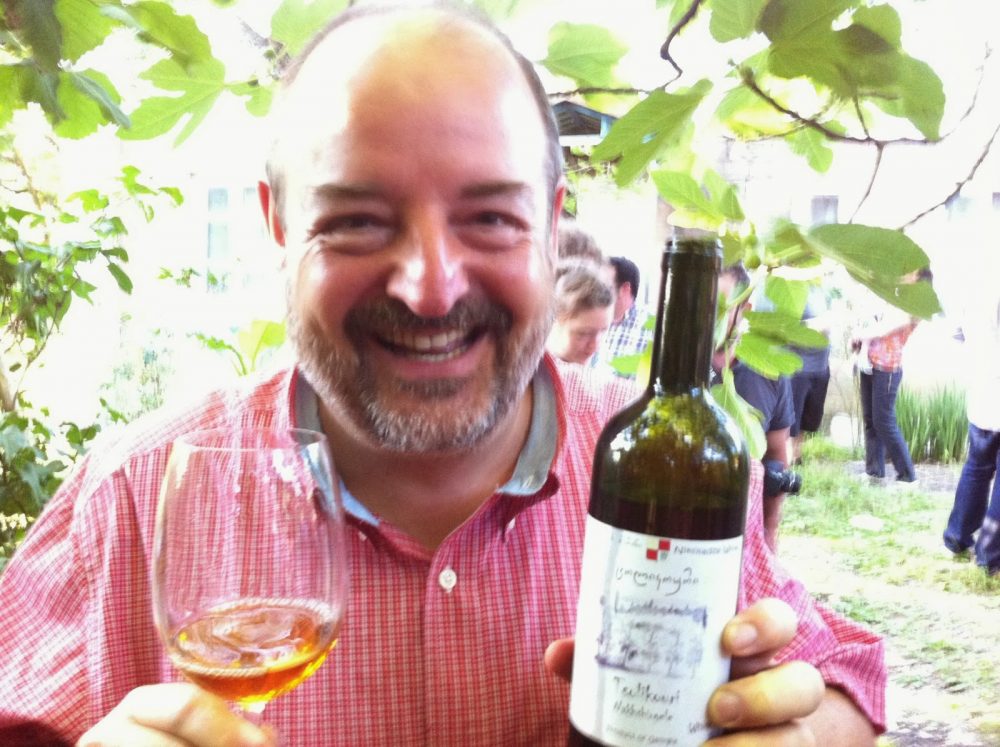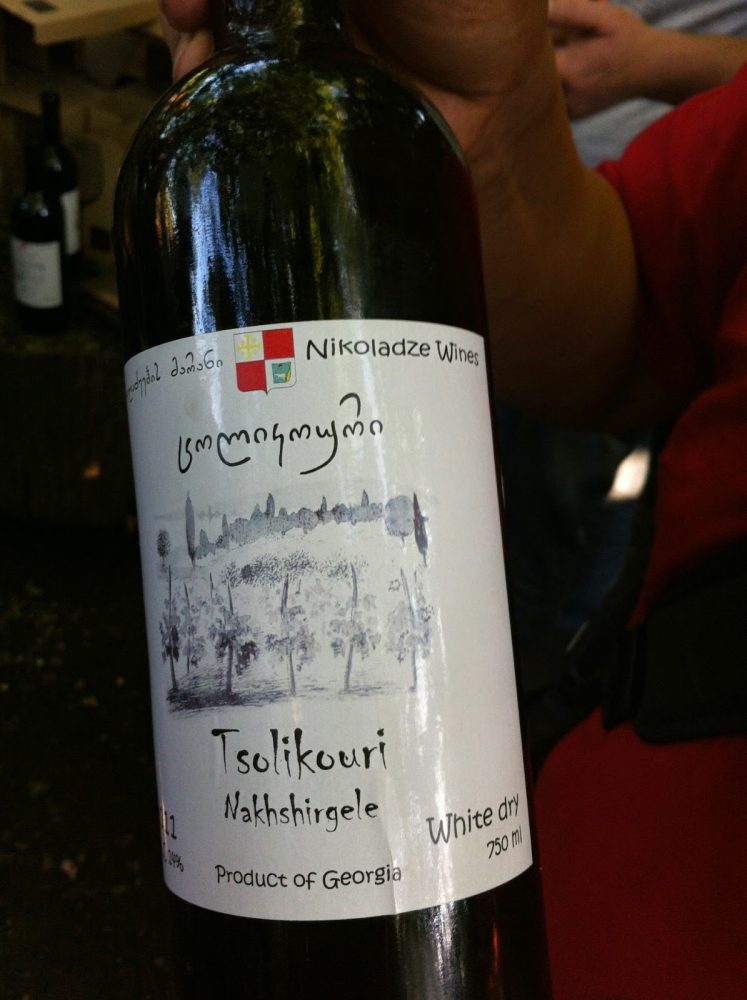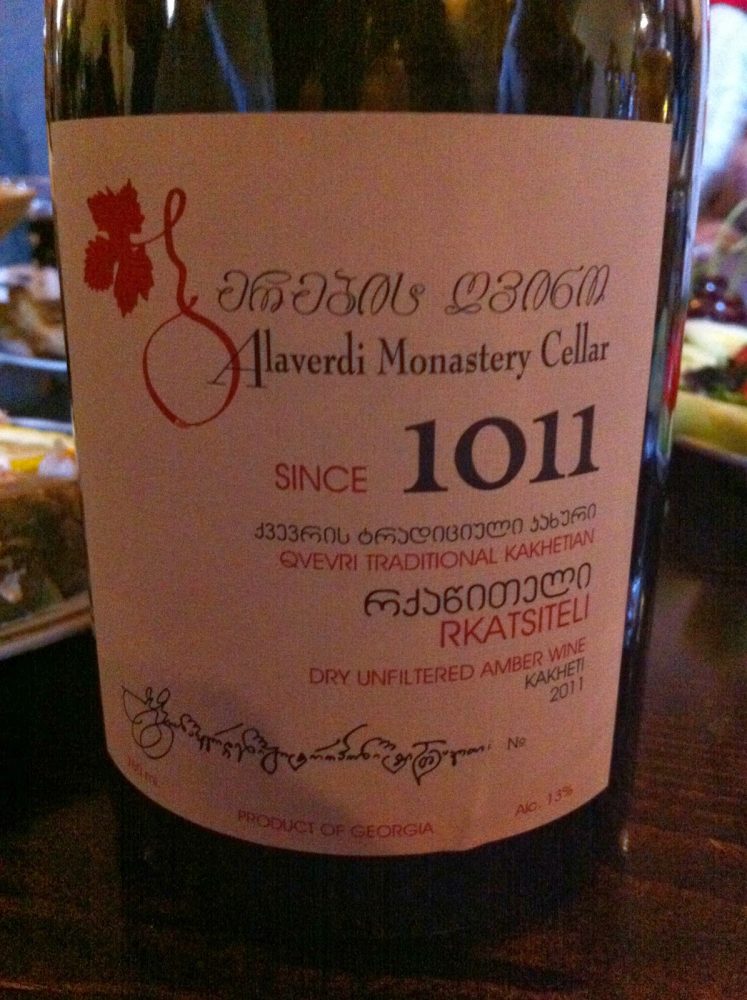A Wine Tourism Conference; your correspondent reports.
Wine Tourism is fun!
I try not to be silent for so many days, but honestly, a combination of Georgian hospitality and the fascinating people of the International Wine Conference have led to a temporary paralysis; one that I am happy to relate is now over, and I am ready to report.
It was the second conference that I have attended of the wine genre, and I can think of no good reason for having delayed participation in this astonishing industry for so many years. Wine folks are different; interesting, convivial and enthusiastic, albeit with a curious vocabulary, their deep interest into a subject that hitherto I have found merely engaging is motivating.
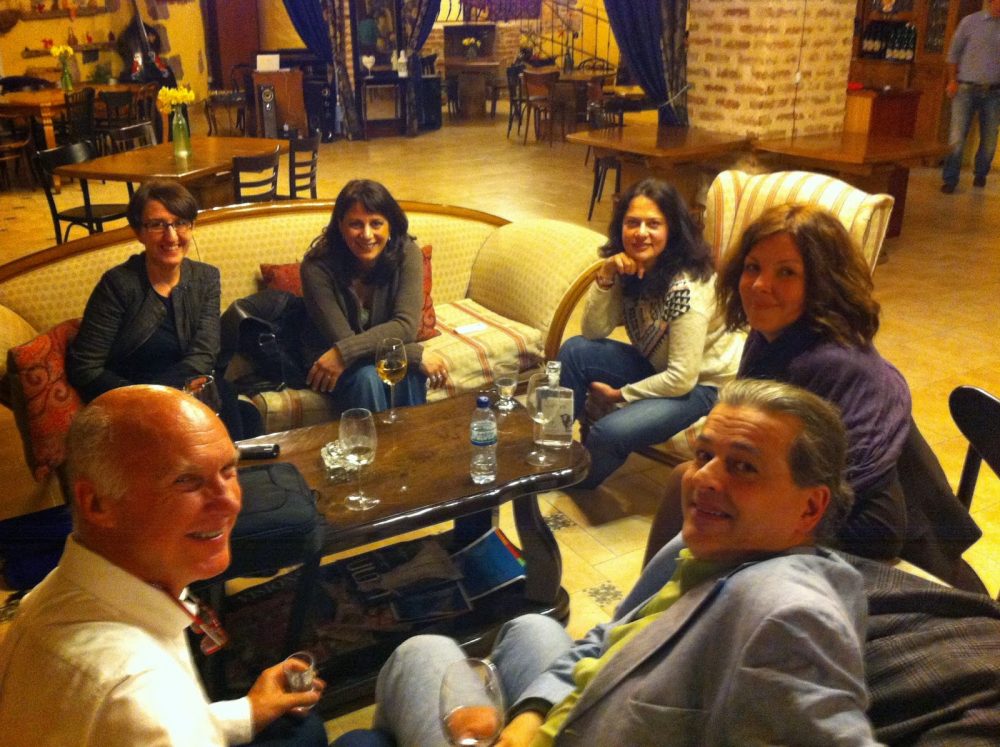
Wine conferences are fun; it is as simple as that. They are not related in any way to the dreary commercial gatherings held in grey motorway hotels, where hundreds of earnest folks gather to discuss the latest trends in snap-on technology or advanced metallurgical gains in beading. They are the jovial end of the business-meeting spectrum, and require more convivial surroundings for their deliberations.
And do not think for one minute that the discussions are frivolous; no, these are folks, deadly serious about their trade mind you, who gather to “enjoy”; their purpose is to find new and exciting grape varieties, nouveau-Wineries, debunk myths and enjoy a glass or two. Add to these darlings the niche-market of the travel industry specialising in culinary tourism and the result is quite magical.
Take Tim Clarke.
A Larger Than Life character, and co-founder of the tremendously successful Arblaster & Clarke travel company, he wanders through life with an enormous grin matching his encyclopaedic knowledge of the subject. He is familiar with hundreds of wineries, their owners and products, the new trends in tourism and of course, can spot an indolent molecule of “leather or banana” in a glass of anything at one hundred metres.
He is also an academic historian, and presented a paper to the conference about his role as a consultant to the Georgian government’s efforts to develop a wine-tourism industry; sadly, we competed for audience share, and I was unable to hear the speech, but have enjoyed reading it, and look forward to promoting their fine tourism programs to our clients.
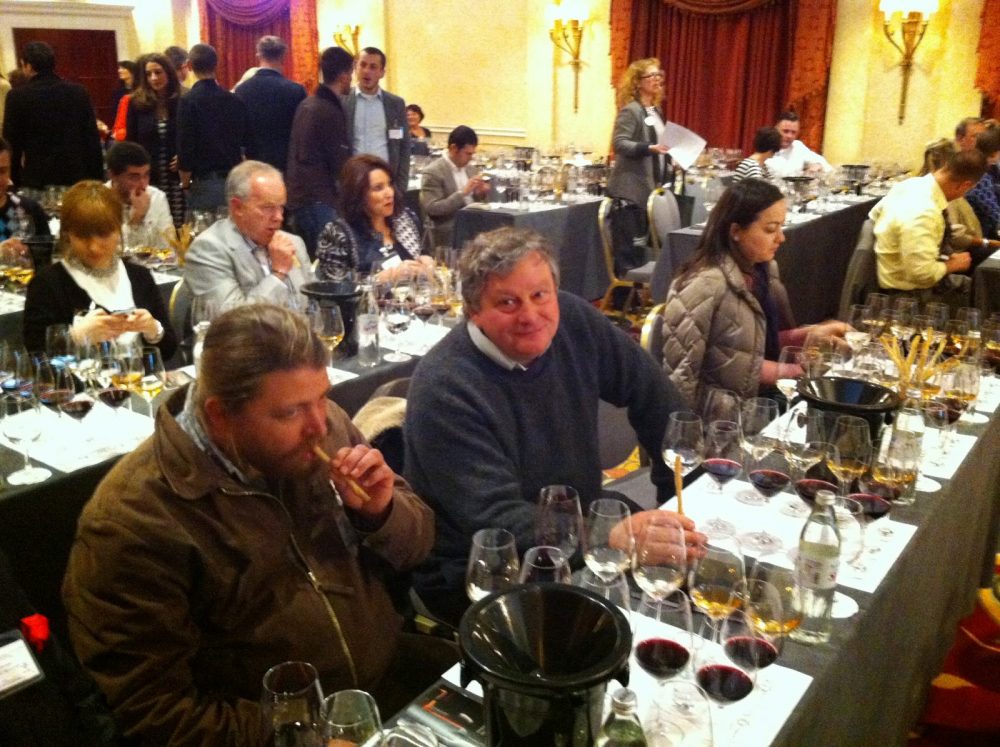
Other papers delivered included such gems as “Wine as Culture. Case Study; Lazio”, “Chicken Soup for the Wine Tourist’s Soul” and “Using Sensory Analysis as Games for a Memorable Visit”. Real corkers, and held the audience in raptures.
There was, of course, a Grand Wine Tasting led by the delightful and astonishingly knowledgeable Master of Wine, Sarah Abbott whose acquaintance I had been fortunate to make a year or so ago on another wine beano in Georgia. She led us rapidly through eleven local wines, each delicious and each memorable (for a minute or two in my befuddled brain) that highlighted the diversity that epitomises the wine industry in this remarkable country.
Thus fortified, and by now knee-deep in wine, we boarded buses to go and drink more of the stuff. Three days spent in quite delightful and cosmopolitan company we struggled through eight marvellous wineries, including my personal favourite, the Alaverdi Monastery.
These monks, and their predecessors obviously, have been making wine since 1011, a pedigree that is quite obvious in their production. They make wines that are simply outstanding and unfortunately rare.
However, for those fortunate enough to make it to their home, which is itself a fantastic complex dating back to the beginning of time, the opportunity to taste their production is well worth the effort.
Needless to say, we ate well as well; Georgians are known for their tradition of feasting, and one can safely say that our hosts did not stint. Eating until the point of blowing-up is not a good habit for the long term, but over a couple of days, it seemed that over-indulgence became the norm.
Tables groaning under the weight of the food, toasts, polyphonic singing, Georgian folk dancing and much laughter became the nightly norm. And as surely as day follows night, breakfasts while delicious, were considerably quieter.
And so one continues to wander in search of a crust; Gruelling Business Travel is an important part of a business life, and one has to say that the world of the culinary travel industry is not a bad gang to be a part of.
